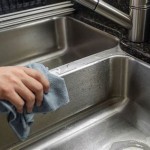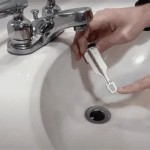Water Filtration for Sink Faucets: A Comprehensive Overview
Access to clean, potable water is a fundamental requirement for human health and well-being. While municipal water supplies undergo treatment processes, contaminants can still be present in the water that flows from a sink faucet. These contaminants may include sediment, chlorine, lead, bacteria, and other potentially harmful substances. To address these concerns and provide an added layer of protection, water filtration systems designed specifically for sink faucets have become increasingly popular.
Faucet water filters offer a convenient and cost-effective solution for improving water quality at the point of use. These systems are typically easy to install and maintain, making them accessible to a wide range of consumers. Understanding the types of faucet water filters available, their filtration mechanisms, and the contaminants they target is crucial for making an informed decision about selecting the right system for specific needs.
Types of Faucet Water Filters
Faucet water filters come in various designs and utilize different filtration technologies. Understanding the key types available allows consumers to identify the best option based on their specific concerns and budget.
Faucet-Mounted Filters: These filters attach directly to the spout of the existing faucet. They are relatively inexpensive and easy to install without requiring any plumbing modifications. Faucet-mounted filters typically divert the water flow through a small filter cartridge containing activated carbon or other filtration media. The user can switch between filtered and unfiltered water by using a diverter valve. These are often the most affordable filters, but they can sometimes reduce the water pressure significantly.
Faucet-Integrated Filters: In this design, the filter is integrated directly into the faucet itself. These often require replacing the existing faucet with a new one. These provide a cleaner look and can offer higher flow rates compared to faucet-mounted filters. Faucet-integrated filters often incorporate more advanced filtration technologies, such as reverse osmosis or ultraviolet (UV) disinfection, depending on the specific model. This type of system will typically be a bit more expensive, but offers much better overall filtration.
Under-Sink Filters: While not directly attached to the faucet spout, under-sink filters connect to the cold water line beneath the sink and deliver filtered water through a separate dedicated faucet. These systems commonly employ multi-stage filtration, including sediment filters, carbon filters, and other specialized media, to remove a broader range of contaminants. Under-sink filters typically have a higher capacity and flow rate than faucet-mounted units and can provide a constant supply of filtered water. These filters also usually require professional installation.
Each type of faucet water filter has its own advantages and disadvantages in terms of cost, installation complexity, filtration effectiveness, and water flow rate. Consumers should carefully consider these factors when selecting a system to ensure it meets their specific needs and preferences.
Filtration Mechanisms and Targeted Contaminants
The effectiveness of a faucet water filter depends on the filtration mechanisms employed and the specific contaminants it is designed to remove. Different filtration technologies target different types of impurities, and understanding these mechanisms is essential for choosing a filter that addresses the specific water quality concerns.
Activated Carbon Filtration: Activated carbon is a widely used filtration medium due to its ability to adsorb a broad range of contaminants. It is particularly effective at removing chlorine, which is commonly added to municipal water supplies for disinfection but can impart an unpleasant taste and odor. Activated carbon also removes volatile organic compounds (VOCs), pesticides, herbicides, and other organic compounds. Two common forms of activated carbon are granular activated carbon (GAC) and carbon block filters. Carbon block filters generally offer finer filtration and higher contaminant removal rates compared to GAC filters.
Sediment Filtration: Sediment filters remove particulate matter, such as sand, silt, rust, and other debris, from the water. These filters are typically made of spun polypropylene or pleated paper and come in various micron ratings. A lower micron rating indicates a finer filter and a greater ability to remove smaller particles. Sediment filters are often used as a pre-filter to protect other filtration media and extend their lifespan.
Reverse Osmosis (RO): Reverse osmosis is a more advanced filtration technology that uses a semi-permeable membrane to separate water molecules from dissolved contaminants. RO systems can remove a broad range of impurities, including heavy metals (lead, mercury), nitrates, arsenic, fluoride, and pharmaceuticals. RO systems typically consist of multiple stages, including a sediment pre-filter, a carbon pre-filter, the RO membrane, and a post-carbon filter to improve the taste and odor of the filtered water. RO systems are most effective and require a bit more technical skill for installation and maintenance.
Ultraviolet (UV) Disinfection: UV disinfection uses ultraviolet light to kill bacteria, viruses, and other microorganisms in the water. UV systems do not remove contaminants but rather render them harmless. UV disinfection is often used in conjunction with other filtration technologies to provide a more comprehensive water treatment solution. UV systems need to be maintained and the UV light bulb must be replaced periodically to maintain effectiveness.
Ion Exchange: Ion exchange resins are used to remove specific dissolved ions from water. For example, ion exchange can be used to soften water by removing calcium and magnesium ions, or to remove nitrate ions to reduce nitrate contamination. Ion exchange resins require periodic regeneration or replacement to maintain their effectiveness.
When selecting a faucet water filter, it is important to consider the potential contaminants present in the water supply and choose a filter with the appropriate filtration mechanisms to target those specific impurities. Independent testing and certification by organizations such as NSF International can provide assurance that a filter meets certain performance standards and contaminant reduction claims.
Installation and Maintenance
Proper installation and regular maintenance are crucial for ensuring the optimal performance and longevity of a faucet water filter. Following the manufacturer's instructions for installation and adhering to recommended maintenance schedules are essential for maintaining water quality and preventing filter failure. Failure to maintain such systems could lead to water contamination or premature failure of the filter elements.
Installation: Faucet-mounted filters are generally the easiest to install, requiring no special tools or plumbing skills. Simply attach the filter to the faucet spout and tighten the connections. Faucet-integrated filters require replacing the existing faucet, which may involve some basic plumbing skills. Under-sink filters typically require more extensive plumbing modifications, including connecting the filter to the cold water line and installing a separate faucet for filtered water. Professional installation may be recommended for under-sink filters to ensure proper installation and prevent leaks.
Filter Cartridge Replacement: Filter cartridges need to be replaced periodically to maintain their effectiveness. The frequency of replacement depends on the type of filter, the amount of water filtered, and the level of contamination in the water supply. Most filter cartridges have a rated lifespan, which is typically measured in gallons or months. It is important to replace the filter cartridge before it expires to prevent reduced filtration performance and potential health risks. Some filters include an indicator light to tell you when the filter needs replacing.
System Cleaning and Maintenance: In addition to replacing filter cartridges, it is also important to clean the filter housing and other components regularly. This can help prevent the buildup of bacteria and other contaminants. Consult the manufacturer's instructions for specific cleaning recommendations. For RO systems, periodic maintenance may also include replacing the RO membrane, which typically has a longer lifespan than the pre- and post-filters.
Water Quality Testing: To ensure that the faucet water filter is effectively removing contaminants, it is recommended to periodically test the filtered water. Water testing kits are available for purchase, or water samples can be sent to a certified laboratory for analysis. Testing the water before and after installing a filter, and then regularly during use, can help determine its effectiveness and identify any potential issues.
By following these installation and maintenance guidelines, consumers can maximize the performance and lifespan of their faucet water filters and ensure a continuous supply of clean, safe drinking water.
Selecting the correct faucet water filter, understanding its filtration mechanisms, and adhering to proper maintenance schedules are essential for ensuring optimal water quality and long-term system performance. Thorough research and careful consideration of individual needs and water quality concerns are crucial for making an informed decision and enjoying the benefits of filtered water.

Express Water Modern Chrome Drinking Filter Faucet Reverse Osmosis Filtration System And Kitchen Sink Beverage Prtfct14r1 The Home

What Are Kitchen Faucet Filters And Do They Really Work Culligan

Purita Water Filtration System With Single Handle Mb Filter Faucet

Pur Plus Faucet Filtration System Horizontal Chrome

3 In 1 Water Filter Purifier Kitchen Sink Faucet Pull Down Sprayer 2 Handle Tap

The Best Faucet Mounted Water Filter Of 2025 Reviews By Wirecutter

Pur Plus Faucet Mount Filtration System Chrome Pfm400h The Home

Pur Faucet Water Filter Pfm200b Black And Chrome

Kraus Purita Dual Stage Carbon Block Under Sink Water Filtration System With Spot Free Stainless Steel Faucet Fs 1001 Ff 100sfs At Com

Flexible Brass Kitchen Water Filter Faucet Faucets Dual Spout In Colors







